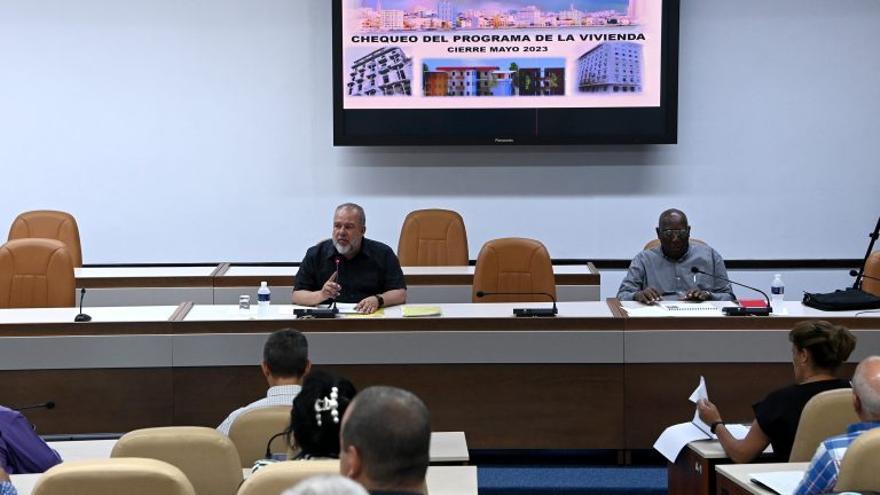
![]() 14ymedio, Madrid, 23 June 2023 — Nine months after the passage of Hurricane Ian through Cuba, 70% of the homes destroyed in Pinar del Río are still not built. That was the central theme of this Thursday’s meeting at the Palace of the Revolution led by the Prime Minister, Manuel Marrero Cruz. They also discussed the effects on the houses in Camagüey, Las Tunas, Granma, Holguín and Santiago de Cuba after the intense rains of two weeks ago.
14ymedio, Madrid, 23 June 2023 — Nine months after the passage of Hurricane Ian through Cuba, 70% of the homes destroyed in Pinar del Río are still not built. That was the central theme of this Thursday’s meeting at the Palace of the Revolution led by the Prime Minister, Manuel Marrero Cruz. They also discussed the effects on the houses in Camagüey, Las Tunas, Granma, Holguín and Santiago de Cuba after the intense rains of two weeks ago.
If you take into account that in December of last year, 83% of families were affected in Pinar del Río, it means that in six months only 13% of the cases have been solved.
“It is inconceivable that we have a material resource and it is not in place,” said the official press, referring to the “constant dissatisfaction of the people with the limited advance of the pace of the recovery of the housing fund.”
Although the article published jointly by Granma and Cubadebate describe a “deep analysis” that “left no gaps for self-indulgent expressions” at the government meeting, the title accounts for the impotence of the State to solve the problem: “We have to find the solutions together.”
Marrero expressed himself again in voluntarist terms, saying that it is necessary to “trace a different strategy to accelerate the recovery, which isn’t going at the pace demanded by the population.”
Without detailing what that different strategy would be, the prime minister continued in the same tone: “We cannot leave it to spontaneity; we have to control; we have to conduct this process and the search for solutions until we finish.”
Marrero did not specify whether or not the theft of material had occurred but declared: “In all these affected provinces, we must apply the established laws to whoever is caught diverting resources.”
He also acknowledged that “there is a lack of attention, of visiting people, getting inside their homes,” because “it is demonstrated on the ground that things can be done, despite this cruel blockade we are experiencing,” referring, as usual, to the United States embargo.
Among so much vagueness, he gave some discouraging data on the “compliance” of the housing plan for the month of May: only 13% of the subsidy program has been completed and 9% of the eradication of dirt floors.
What is affecting the completion of the homes, says the prime minister, is “the lack of electric cable and carpentry.”
Hurricane Ian, which passed through western Cuba at the end of last September, left the province of Pinar del Río as a “disaster zone.” The tobacco industry, the main one in the province, suffered, in the words of the Government itself, “the biggest blow in its history,” and more than one hundred thousand homes suffered significant damage.
Translated by Regina Anavy
____________
COLLABORATE WITH OUR WORK: The 14ymedio team is committed to practicing serious journalism that reflects Cuba’s reality in all its depth. Thank you for joining us on this long journey. We invite you to continue supporting us by becoming a member of 14ymedio now. Together we can continue transforming journalism in Cuba.
